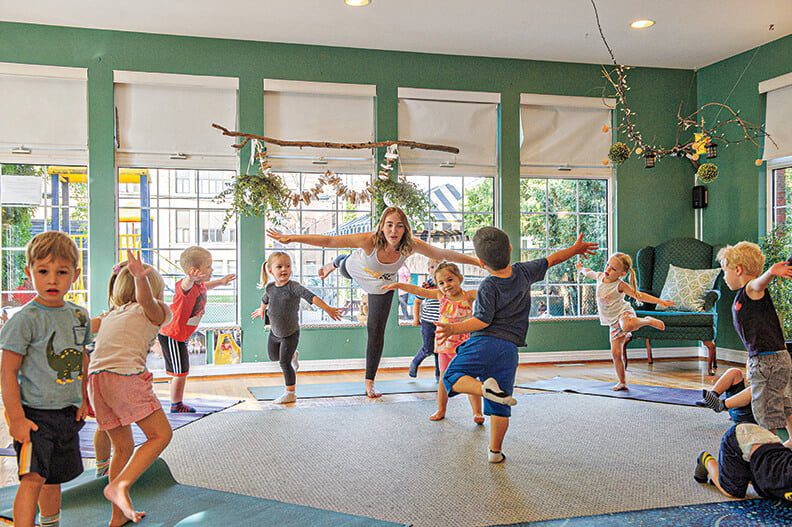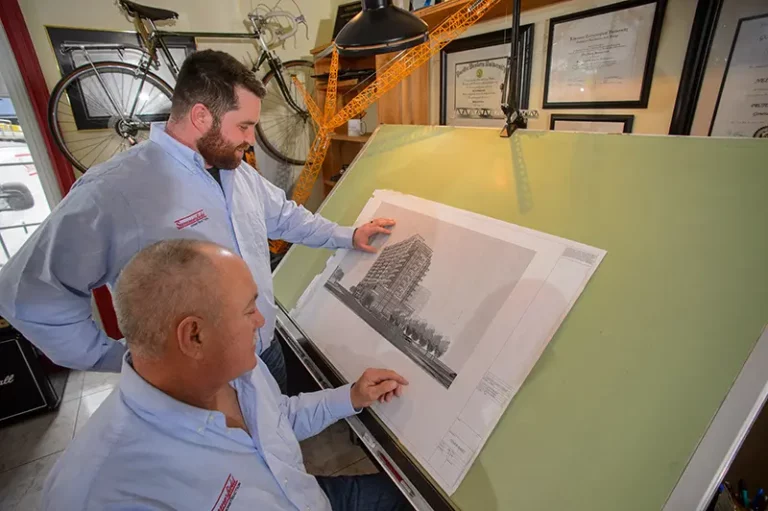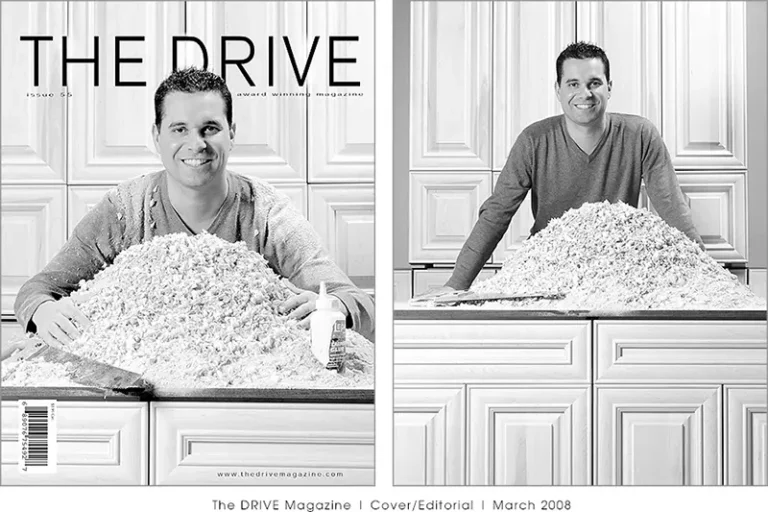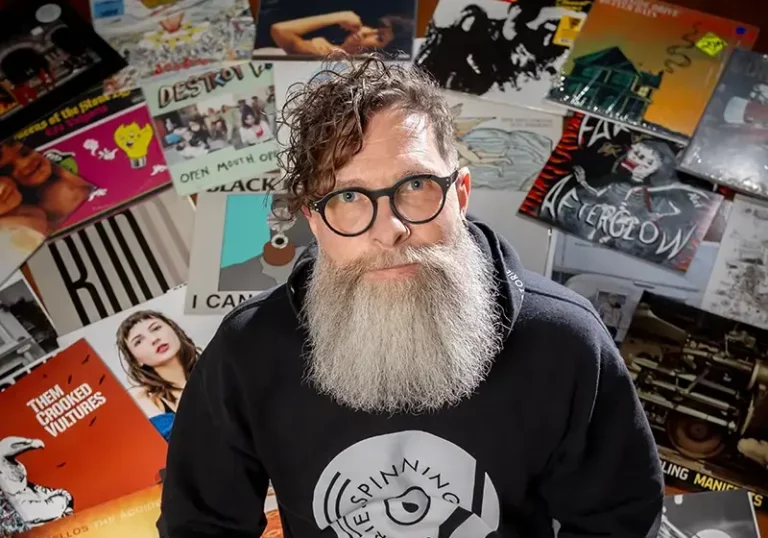“Put everything aside that anyone has ever told you about yoga,” Karli Kurzuk tells her students as soon as they enter the space. “That it’s for girls. That it’s for adults.”
She asks them to open their minds, to give yoga an honest try. Her “Yellow Bus Yoga” program brings yoga right to schools and daycares, where practices—held both indoors and outdoors—vary from 15 minutes for toddlers, 30 minutes for preschoolers, upwards to an hour for older kids.
“Miss Karli” begins each session with a community circle, where she passes around a stuffed animal and everyone takes turns saying what they’re grateful for. The boys are typically the most hesitant to hold the toy, but Karli says by the third or fourth week, they’re hugging and kissing the stuffed animal.
“We’re breaking down gender stereotypes this early and telling them that there’s no such thing as a boy thing or girl thing. These are just fun things that we do together,” she says.
One boy in her class exclaimed that he would never do yoga, and he’s only five or six. Karli says this resistance to yoga usually only lasts five minutes, and by the end of the class, he had picked a “thank-you” flower for her.
A goal with a clear vision
When Karli was first teaching yoga in a studio, she found that the students who came to class often came from families who were able to afford it, or ones who already taught yoga concepts at home. The goal was to find a way to reach the kids who weren’t able to access a class because of scheduling or financial situations.
“I shifted my vision to teach in schools, to be able to connect to a more diverse crowd of students,” Karli explains. “There’s a misconception that yoga is only for those who can ‘afford it’ – that this upper-class thing is out of your price range, and you don’t ‘deserve it.’”
Yellow Bus Yoga is for anyone, anywhere, no matter what their living situation is—and no matter the age. Karli teaches children as young as two and a half, who now know sun salutations by heart, up to high school students, who come up asking for tips on how to study more efficiently.
“I make it my purpose to reach more students each month, because I’ve seen what can happen when we empower our youth to take on the practice,” she says, adding that there are many grants available for schools that allow them to combine social and emotional learning into their curriculums. “Children’s yoga isn’t just about the physical poses but building a foundation of mindfulness and gratitude in them.”
She explains the two sets of breathing exercises she incorporates. “Bunny breath” is a useful energizing breath for when the kids need to wake up for school: they can bring their bunny paws up and take in little staggered breaths. For a calming one, she teaches them “bear breath,” which is training the kids to breathe in deeply through their belly before bed or in tough situations.
Class focus
Karli’s classes focus on four pillars: helping one another, community connection, caring, and listening generously. She keeps these four pillars at the forefront of every class so they can be incorporated into the discussion. For example, when Karli asks her class where they can use the calming exercises, a girl raises her hand to say, “When you’re being bullied.” Upon hearing this, Karli opens the class up to talk about how they feel when someone bullies them.
While validating the concerns of the children, Karli also explains that a “bully” is just a “love-seeker.” “One person is not a bully; they’re just someone who is showing those qualities right now. We’re not to label them, just like they’re not to label us,” she says. “Every single person has the ability to be their best selves, and if we label them, they’re going to think that’s what they are, when they could be so much more.”
The class learns to accept help, and that it’s a sign of strength and not weakness. Having them understand that they’re not alone—and that others have the same worries—opens up the conversations that eventually blossom into friendships. Even at age three, the children can absorb the values and build them into their foundation. By being presented with different perspectives to situations, they will learn to adapt and listen to other opinions as adults.
The benefits
Jenny Sprague, business manager at the Delta Chi Early Childhood Centre, speaks to Miss Karli’s yoga and deep breathing, and how it has helped the children to self-regulate.
“Children can’t always communicate directly if they are stressed over being hungry or tired,” she explains. “The practice helps them with empathy development and focus, and they become more aware of what their bodies are doing.”
Delta Chi has included self-regulation in their programming for 10 years, and it’s something that parents have taken on at home as well.
“Charlie and Ellie are always excited to show me what they’ve learned with Miss Karli,” says Delta Chi parent Erin Livingston. “Now, when redirecting them I have asked them to use different breathing methods to reduce any anxiety.”
Karli’s mindfulness program empowers teachers and parents with learning materials to take on the practice even when she’s not there. The consistency reinforces the kids to recognize when their minds are overwhelmed by expectations at home or test anxiety, and how to ease through it.
The mantra
A mantra she leaves them with is, “I feel good about myself even when my grades aren’t where they’re supposed to be.”
By handing them the tools to help understand their emotions, Karli is building a future of strong and empathetic adults.
Tips
Want to help ease the transition into the school year? Here are some of Miss Karli’s Back to School Tips for helping your children and students adjust to their new classroom.
The Magic of Kindness (Fill your bucket)
The analogy is simple: everyone is born with an imaginary bucket. The way we fill each other’s buckets is by doing nice things for them. This can include sharing, smiling, letting someone borrow your things, or even holding the door open for someone.
Teachers and parents can create a group bucket. When a child does something nice, the buckets starts to fill up with kind tasks that you write on a piece of paper. (Example: Alice shared her toys with Peter.)
When the bucket reaches a certain level, about 10 or 20 tasks, the class gets a reward!
What do I see, hear, and feel?
When you notice stress is becoming too overwhelming in your child/student, have them try this exercise.
- Close your eyes, take a deep breath. List three things you can hear.
- Open your eyes softly, take a deep breath. List three colours you can see.
- Take one more deep breath. List three things you can touch around you. Are they soft, hard, coarse?
Not only does this exercise divert their attention from nearing panic attack or meltdown, it also helps to centre themselves into the present moment as a mini meditation.
Talk about it
Remind students that if they are feeling stressed and anxious at school, they are not alone. When kids fear something, they often feel as though they are the only ones who have this fear and won’t talk about it. Remind them that school is TOUGH! Especially during a transitional time like moving from a child’s home environment to daycare, preschool to elementary school, elementary school to high school and so forth.
Creating an open channel of communication helps build community within the classroom and helps end the stigma of mental health meaning someone is weak. Know that there is power in asking for help.
If you want to see Miss Karli in your class, you can reach her at: [email protected] or visit their website: www.yellowbusyoga.com



